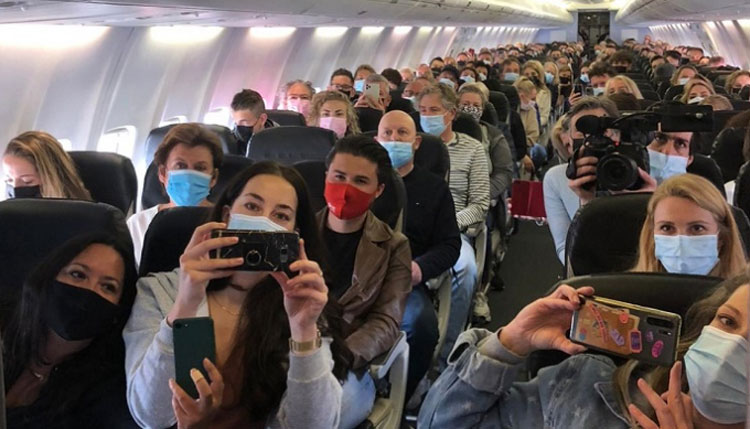The Diplomat
The Dutch authorities have included the autonomous communities of the Balearic and Canary Islands in the list of territories to which their population can travel for tourism safely, although not without risk, in the midst of the coronavirus pandemic.
In a statement, the Dutch Foreign Ministry said yesterday that while the rest of Spain remains restricted, as of Thursday the Balearic and Canary Islands – along with seven other European countries – will now be upgraded to the yellow category, which indicates a lower risk and allows travel for tourism purposes.
The Netherlands expanded its list of safe European countries for tourist travel to include Germany, Italy, Luxembourg, Austria, Poland, Slovakia and the Czech Republic because there has been a “steady decline in coronavirus numbers”, making “holiday travel to more and more areas” possible.
Travelling to a state marked yellow also means that travellers and nationals from these countries no longer have to present a negative PCR to enter the Netherlands, nor do they have to undergo a 10-day quarantine upon arrival, but this does not mean that these countries apply reciprocity with the Netherlands.
Spain will remain orange, so travellers arriving in the Netherlands from the Netherlands, with the exception of the two archipelagos, will have to show a negative PCR of maximum 72 hours and will be advised to undergo a 10-day quarantine, which can be reduced to five days if they have a further negative PCR.
British Ambassador
Meanwhile, the British ambassador in Madrid, Hugh Elliott, said that “in principle” the Canary Islands and the Balearic Islands will be studied separately for the next review of the Covid-19 traffic light, in three weeks’ time.
In an interview with Europa Press Television, Elliott indicated that “in principle” the request of the governments of both Spain and the archipelagos, with whom they have “very good communication”, to catalogue the islands separately will be met, but that “in practice we will have to see the situation on the ground with the scientists”.
The whole of Spain remains amber in the British traffic light, which means that tourists will have to undergo a ten-day quarantine on their return to the UK, despite the fact that, since 24 May, Spain has allowed them to enter without any requirements.
The ambassador recalled that, for the moment, the traffic light has only been applied at the national level, but the islands (Canary and Balearic Islands) have been opened to study separately due to “their geographical situation” and because they have “direct flights to the UK”.
He stressed that in mainland Spain the situation “is different”, as there is “very fluid movement” between regions without being able to establish controls between them, so the peninsula has to be studied “as a whole”.
Elliott indicated that he “understands” other communities that “have done a very good job”, such as the Valencian Community, “which has very good numbers”, and knows that it is “frustrating” not to be able to receive British tourists, but he stressed that, “unfortunately, due to the fluidity that exists at the borders between regions, it is not possible to segregate within mainland Spain”.
“Could Spain be included in the next review? Yes,” he replied, adding that the situation is being reviewed every three weeks so that the list “is as up to date as possible”.







